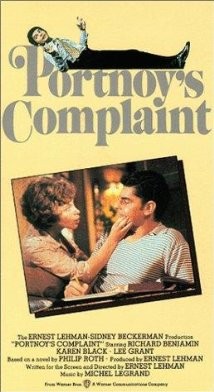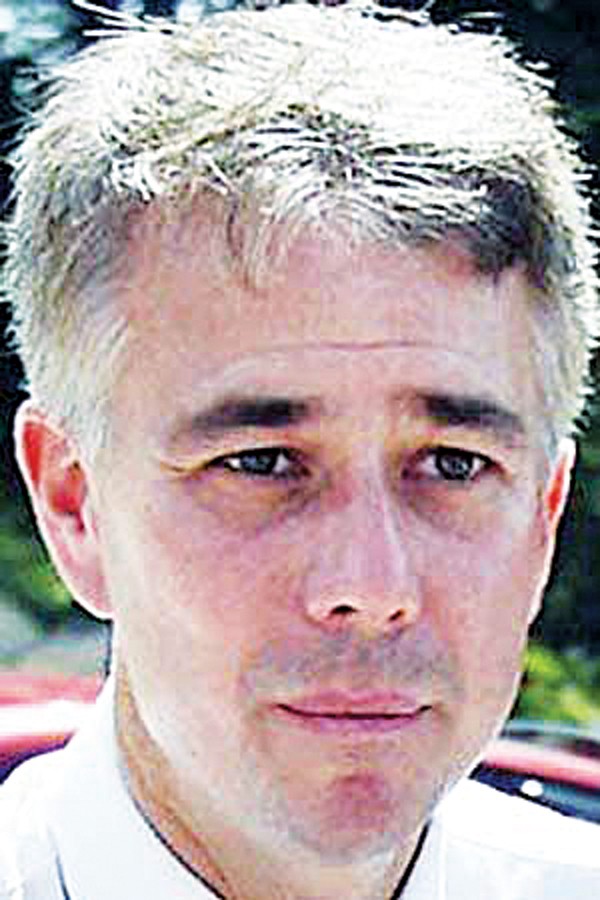As the race for the Democratic nomination for Shelby County mayor entered this week, the last full one before next Tuesday’s May 6th primary, the three-way contest for the right to oppose Republican incumbent Mayor Mark Luttrell had largely settled, as expected, into a two-way affair between current County Commissioner Steve Mulroy, who had more cash on hand, and former Commissioner Deidre Malone, who could claim deep roots among the party’s rank and file.
This is not to minimize the third contestant, the Rev. Kenneth Whalum Jr., the controversial former school board member whose rhetorical fire and populist image are an X factor in the election. It is merely to recognize that Whalum’s financial resources, which are virtually nonexistent, were not such as to grant him the full county-wide attention that his Memphis-centric message requires for maximum effect.
As of March 31st, when financial disclosures for the first quarter were due, Mulroy claimed receipts for the period of $35,021, with $20,000 on hand. Malone’s comparable figures were $36,405, with $17,972 on hand. For the record, Whalum had raised $1,000 and had all of $740 on hand.
Another disclosure was due Tuesday, and it will almost certainly show that considerable new sums were raised by both main contenders since the last disclosure and that a fair amount of money has been spent by each in the interim since March 31st.
More is yet to come. Early voting, which began on the 25th, was due to end on Thursday of this week, May 1st, and Mulroy and Malone were going all out.
From the beginning, an endorsement battle has been underway. Mulroy pulled off an early coup by netting the endorsement of former Criminal Court Judge Joe Brown, who is now the Democrats’ uncontested nominee for district attorney general and whose considerable fame as TV’s “Judge Joe Brown” has earned him major influence in local Democratic affairs.
Mulroy has been boosted as well by endorsements from nine major unions and from such inner-city political figures as former commissioner and interim County Mayor Joe Ford and current Commissioner Justin Ford, along with City Councilmember Janis Fullilove.
For her part, Malone has scored a laundry list of endorsements from other Democratic figures. This past week, in particular, has been good to her in this respect. Although Mayor A C Wharton was not exactly loud and vocal about it (and absent from an impressive ceremony Malone staged last week with other influential endorsers), she did get a statement of support from the mayor that allowed her to include him at the top of her endorsement list.
That was followed up by this week’s endorsement of Malone by The Commercial Appeal, giving her a stout one-two punch and a real boost for the last stage of the primary.
Mulroy’s contention, as he expressed it in a recent debate with Malone and Whalum sponsored by the Shelby County Democratic Party, is that Democrats should not attempt to fuzz the distinctions between themselves and Shelby County Republicans, but rather to present an “aggressive contrast.”
Malone has been a down-the-line exponent of traditional party causes, and her lead role on the County Commission in attempting to broaden the structure of Juvenile Court both complemented, and in some ways, anticipated the militant reform efforts of current Commissioner (and Juvenile Court clerk candidate) Henri Brooks.
Even Whalum (a bold and dedicated soul who will surely object to that “even”) sees the mathematical necessity to build bridges across a county divide that is part political, part racial, and part geographical, and, in a recent speech to a meeting of the Germantown Democrats, he made it a point to court not only the suburban party-mates in his audience but even members of the opposite party.
“It’s a foolish loser who says he doesn’t want Republican votes. I’m not going to limit myself,” Whalum said on that occasion, during which he redefined the thrust of his adamant opposition, as a member of the Memphis City Schools (MCS) board, to the December 2010 surrender by the board of the MCS charter.
“I was the only Memphis official who fought for the suburbs to have their own schools,” Whalum said. “I have a very good working relationship with all the municipal mayors. I stood with them on their school systems.”
Up to this point, a certain comity has been practiced by the competing Democratic candidates — one which had them describing each other as “nice people” in the course of a party-sponsored mayoral forum in early April.
But of late, Mulroy and Malone have exchanged some serious shots.
Among several charges in a Mulroy mailer this week is an allegation that Malone “contibuted financially JUST LAST MONTH to the campaign of an opponent seeking to defeat Representative Steve Cohen.”
And, indeed, financial disclosure records show that Malone, on March 27th, contributed $250 to the primary campaign of Ricky Wilkins, Cohen’s primary opponent this year.
Clearly, the charge is meant to shake Malone’s support among supporters of a Democratic congressman who has won a progressively greater hold of his party’s voters with each successive election since his first one in 2006.
Cohen, who made it clear last week that he would not endorse anyone in the mayoral primary, pleading that he had “too many friends” in the race, was not moved to alter his technical neutrality by this circumstance — nor by a parallel charge from the Mulroy camp that Malone had supported Tomeka Hart against Cohen in the 2012 primary.
But it did lead him to redefine his definition of “friends” to mean more specifically Mulroy and Whalum, both consistent supporters of Cohen’s election bids, and to describe Malone’s position as “certainly unusual,” one that, “politically … makes no sense.”
For her part, Malone has begun to exploit what she regards as a Mulroy weak point, his vote in 2011 with a commission majority to support Luttrell’s decision to award Christ Community Health Services (CCHS) a county contract to administer federal Title X funds for women’s health services, rather than Planned Parenthood, the traditional grantee and the clear favorite of pro-choice Democrats.
Mulroy has explained that vote as one made in order to barter with what was already a bipartisan majority for CCHS so as to impose strict and measurable compliance standards. And in recent weeks, he charged CCHS with falling short of those standards and made a conspicuous — if ultimately unsuccessful — effort on behalf a rebidding the Title X contract.
Although Malone herself has publicly soft-pedaled the point somewhat, on the occasion of her endorsement ceremony last week, she vigorously seconded allegations by state Representative G.A. Hardaway, a supporter, that Mulroy had made “a back-room deal with Republicans,” which he was now trying to put forth, Hardaway said, as being in the best interest of women’s rights.
After next Tuesday, all this unpleasantness will be forgotten, and each of the three Democrats has pledged to support the one survivor against the formidable Luttrell, who is opposed only by the hapless perennial Ernest Lunati in the GOP primary.
Other Contested Races:
County Commission, District 2 (Republican primary): In a battle between two east Shelby County members of the finance industry, newcomer David Bradford, assisted by former Luttrell insider Dan Springer, is running neck-and-neck with George Chism, son of a former longtime county school board member and a familiar figure in Republican circles. Both are well funded.
County Commission, District 3 (Republican primary): It’s a four-way race in the Bartlett area between businessman Naser Fazlullah, consultant and military veteran Kelly Price, school board member David Reaves, and educator and longtime Republican activist Sherry Simmons, wife of Bartlett alderman Bobby Simmons. Reaves and Simmons, both well-financed, are the main contenders, with Price hoping to break through as the GOP’s latest exemplar among African Americans.
County Commission, District 4 (Republican primary): Foundation executive and current Commission incumbent Mark Billingsley is seemingly much too well-financed and supported for retired lawman Ron Fittes, who is, however, running hard.
County Commission, District 6 (Democratic primary): The contenders are Karl L. Bond, Willie Brooks, Edith Ann Moore, and Kendrick D. Sneed. Former School Board member Brooks would seem to have an edge over former interim County Commissioner Moore. Both have money to run on.
County Commission, District 7 (Democratic primary): Incumbent Commissioner Melvin Burgess, son of a widely admired former Memphis police director, has too much support and name recognition for gallant newcomer Brandon Echols to overcome
County Commission, District 8 (Democratic primary): Longtime Commissioner Walter Bailey is presumably strong enough to fend off a spirited challenge from former interim City Councilman Berlin F. Boyd. David Vinciarelli is also running.
County Commission, District 9 (Democratic primary): Commissioner Justin Ford is hoping his incumbency and family name are enough to hold off former school board member Patrice Robinson, who has money and serious endorsements, and Memphis Education Association head Keith Williams, who also has a network and good funding.
County Commission, District 10 (Democratic primary): The third time’s the charm for community organizer Reginald Milton, who has impressive across-the-board support against former school board eminence Martavius Jones (who’s running a stealth campaign), and newcomer Jake Brown, who does have Joe Brown’s backing.
County Commission, District 11 (Democratic primary): In a five-way race between Curtis Byrd, Donnell Cobbins, Eddie Jones, Hendrell Remus, and Claude Talford, the main contenders would seem to be Cobbins, Jones, and Talford.
County Commisson, District 12 (Democratic primary): Well-financed attorney and former Democratic Party Chairman Van Turner is a slam dunk over the little-known Bryant Boone.
Assessor (Republican primary): Mary Peters Royko may have a slight edge over Keith Alexander.
Assessor (Democratic primary): Incumbent Cheyenne Johnson should prevail easily over challenger Lorie Ingram.
Trustee (Republican primary): Incumbent David Lenoir is an easy win over Jeff Jacobs.
Trustee (Democratic primary): Derrick Bennett is considered to be leading frequent candidate M. LaTroy Williams, who, however, seems to have funding.
Circuit Court Clerk (Republican primary): The ever-popular Jimmy Moore in a walk over GOP newcomer Michael Finney.
Circuit Court Clerk (Democratic primary): Veteran Democrat Del Gill should win over Rhonda Banks.
Criminal Court Clerk (Democratic primary): Hard-running City Councilmember Wanda Halbert, current City Court Clerk Thomas Long, and prosecutor Michael R. McCusker are in a spirited three-way race. Once again, the deserving perennial Ralph White seems out of the running.
Juvenile Court Clerk (Democratic primary): With her prominence as a Juvenile Court watchdog overriding her reputation for abrasiveness, County Commissioner Henri Brooks should prevail over former City Administrator Kenneth Moody, whose campaign never quite got started.
Probate Court Clerk (Democratic primary): The seven candidates are Regina Beale, Jennings Bernard, William Chism, Jr., Darnell Gatewood, Sr., Cynthia A. Gentry, Aaron Hall, and Heidi Kuhn. The well-known Bernard, respected probate attorney Hall, and the hard-working Kuhn, wife of prominent consultant and former Democratic chairman, Matt Kuhn, are the best bets.
County Clerk (Democratic primary): Respected longtime Democratic figure John H. Freeman, supported by Mayor A C Wharton, is well positioned against Yolanda Kight and Charlotte B. Draper.
Register (Democratic primary): Coleman Thompson, who has run before, should prevail over the lesser-known Stephen Christian.
Incumbents Bill Oldham (Republican) and Bennie Cobb (Democrat) have no primary opponents in the race for Shelby County Sheriff. Also unopposed in the Republican primary are Richard L. DeSaussure III for Criminal Court clerk and incumbents Joy Touliatos, Paul Boyd, Wayne Mashburn, and Tom Leatherwood for Juvenile Court clerk, Probate Court clerk, Shelby County clerk, and Shelby County register, respectively.



 JB
JB  Jackson Baker
Jackson Baker